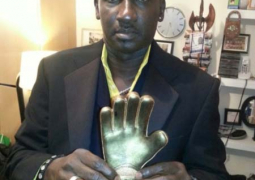He said in order to determine Sharia, Islamic law, as far as FGM is concerned, researches were done in the Quran and the Sunnah but nowhere was it found to be a mandatory practice.Then further researches were done from other sources of Sharia but the outcome was not different.
“Therefore (Islamic) scholars (who support FGM) based their arguments on narratives that cannot be traced to credible Islamic sources,” the Oustass said at a five-day anti-FGM forum underway at a hotel in Kololi.
It was organised by Safe Hands for Girls, an organisation working for the promotion and protection of the rights and welfare of the girl child.
Oustass Sano, a resident of Tallinding, said a valid argument against FGM can only be based on authentic sources: the Quran, Hadith or the two sources – Ijma and Qiyas.
However, the former Imam of the State House in Banjul, Abdoulie Fatty, was quoted by a local newspaper as saying the ongoing anti-FGM campaign is ‘symptomatic of disinformation’.
During a translation of the Quran, the Imam is reported to have said that the traditional practice “is good for society” but did not quote any verse of the Quran or Hadith to substantiate his argument.
Weak hadith
Oustass Sano said there is prominent hadith in which it was narrated that Prophet Muhammed has seen a woman performing FGM in Medina but did not condemn it.The prophet only told her not to cut severely “as that is better for a woman and more desirable for a husband”.
Sano said “this hadith was weakly ascribed to the prophet” as indicated by Al Hafez Zeinideen Al Iraqul in his commentary on the Revival Religious Science.
There is another hadith in which the prophet was narrated to have said female circumcision is an act of Sunnah for men and an honorable act for women.According to Sano, this does not mean that is must be done.
The Prophet Muhammed is also said to have said if the two circumcised organs touch each other, Islamic bath is mandatory.Sano said this does not mandate female circumcision nor does it legitimise the practice.
He said even though the hadith is authentic, it does not provide legitimacy to female circumcision as the main focus of the hadith is on cleanliness – ablution and Islamic bath – rather than circumcision.
“In addition, all scholars have interpreted the hadith to mean that the mere meeting of the [female and male] sexual organs does not require bath unless sexual penetration takes place,” Sano said.“So if the literal meaning of the hadith is unacceptable, how then can its implication be acceptable?” he asked rhetorically.
Proponents of FGM from the Islamic point of view often cite the hadith in which Prophet Muhammed said circumcision [without mentioning gender], shaving the moustache, growing bears and cutting the nails are desirable for Muslims.
But on the contrary, those against it said some acts of this hadith such as shaving moustache and growing bears are pertaining to male only so the hadith, though authentic, can only be applicable to men not women.
Oustass Sano said it has never been narrated that the prophet advised any woman who accepted Islam to be circumcised or any of his [the prophet] family members to be circumcised.
He said renowned and well learned Islamic scholars like Imam Shafi are not on record for saying all men and women should be circumcised.
“In Islam, any practice that can affect individual’s health is not accepted,” he said.
The UN Population Fund said FGM has serious immediate and long term health effects besides being a violation of fundamental human rights.
Immediate complications include severe pain, difficulty in urinating, and haemorrhage which can be severe enough to cause death.Long-term consequences include anaemia, menstrual disorder, painful sexual intercourse, and complications during childbirth.
Despites whooping scientific evidence, the prevalent level of FGM in The Gambia is more than 75 per cent, according to statistics.
Researchers have found out that the majority of those practising it do so because of the belief that it is an Islamic injunction.
However, even Islamic proponents of FGM have noted that the practice precedes the time of Prophet Muhammed.



